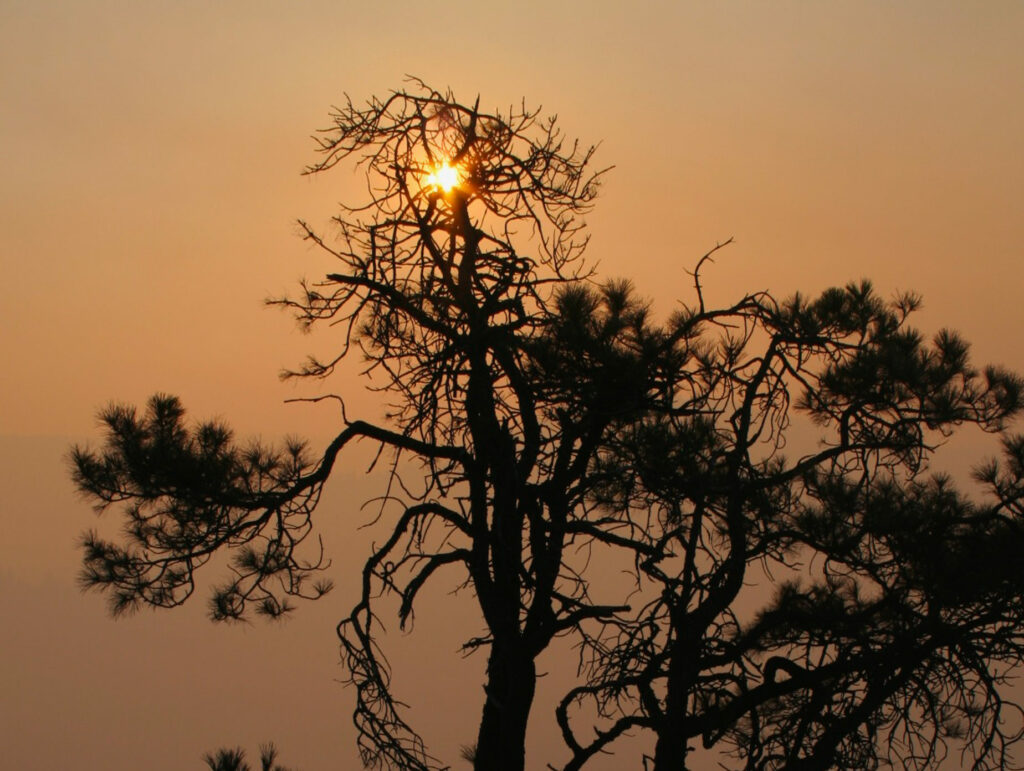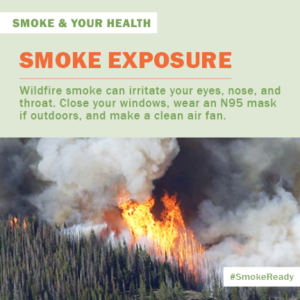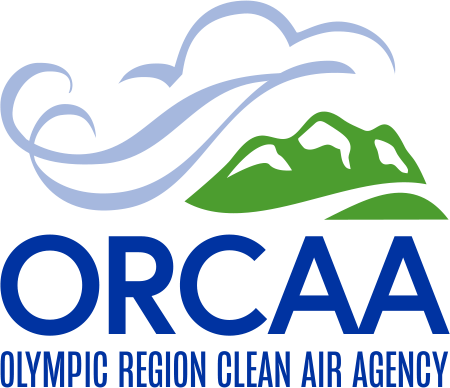
As much of the western United States suffers through yet another season of drought, the risk of major wildfire smoke events in western Washington is higher than ever this summer.
That means our residents need to be aware of how that smoke could impact their health and how then can reduce the risks.
 Smoke and Your Health
Smoke and Your Health
According to the Washington Department of Health (DOH), air pollution from smoke can cause serious health problems, especially for those people who are already sensitive to environmental pollution. Exposure to smoke can cause several health problems that range from minor to severe. Increased air pollution may exacerbate existing conditions, or trigger new health issues, such as: irritation of eyes, nose, and/or throat; headaches; coughing; shortness of breath; mental health concerns and/or psychological stress.
Sensitive Groups with Increased Risk
- People with health conditions such as:
- Lung & heart diseases such as asthma, COPD, and emphysema.
- Respiratory illness or infections such as pneumonia, bronchitis, colds or flu
- Heart or circulatory problems such as congestive heart failure, angina, and coronary artery disease.
- Diabetes
- People 18 and younger
- People 65 years and older
- Pregnant people
- Outdoor workers
- People of color
- Tribal and indigenous people
- People with low income
These groups make up more than 40 percent of Washington’s population, according to DOH.
While wildfires – some several thousand miles away – create many of the worst air quality events during the summer, those massive forest and grassland fires are not the only sources of smoke in our communities. Wood smoke pollution comes from several sources, including
- Wildfires
- Wood stoves
- Pellet stoves
- Fireplaces
- Recreational fires/campfires
- Residential Yard Waste Burning
- Agricultural burning
- Prescribed fires and other silvicultural fires (i.e. ‘slash burns’)
To help reduce your risk of exposure to smoke events, the DOH recommends these practices:
- Stay updated on current and forecast air quality
- Reduce exposure
- Avoid strenuous outdoor physical activity
- Limit time outdoors
- Stay inside with cleaner indoor air
- Close windows and doors, unless it is too hot to maintain safe temperatures
- Don’t add to indoor air pollution
- Filter indoor air
- HVAC system with a MERV 13 filter
- Portable air cleaner with a HEPA filter
- DIY box fan filter
- If unable to maintain clean air at home, go elsewhere for cleaner air, such as a friend’s or public space
- Pay attention to symptoms
- Seek medical help if needed
More information on Smoke and Your Health can be find at the DOH website here.
